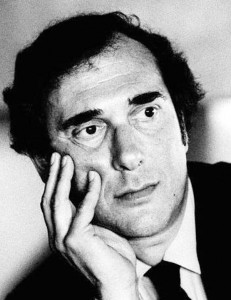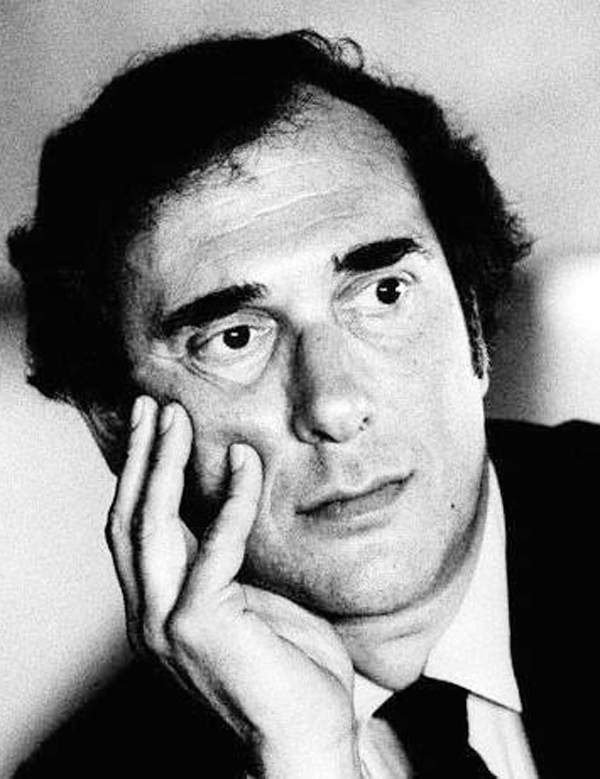Harold Pinter: The renewer of English drama in the 20th century
At the end of the year 2008 Britain mourned at the death of one of the most dominant and influential English playwrights of the contemporary era. Some commentators recognise him as the most influential in English drama of the second half of the twentieth century.

He was described as such by the Swedish Academy when he was awarded the Nobel Prize for Literature Prize on December 10, 2005. The presentation speech read by Nobel Committee Chairman, writer Per Wästberg, declared:
“Harold Pinter is the renewer of English drama in the 20th century. ‘Pinteresque’ is an adjective listed in the Oxforf Dictionary. Like Kafka, Proust and Graham Greene he has charted a territory, a Pinterland with a distinct topography.
“… However British [he] may appear in the eyes of many, [his] international and inter-human impact in the field of drama has been uniquely strong and inspiring for half a century. If someone thinks [his] prize is late in coming, we may reply that at any given moment somewhere in the world [his] plays are reinterpreted by new generations of directors and actors.”
Another statement on his impact and achievement says:
“Harold Pinter is generally seen as the foremost representative of British drama in the second half of the 20th century. That he occupies a position as a modern classic is illustrated by his name entering the language as an adjective used to describe a particular atmosphere and environment in drama : ‘Pinteresque.’”
And indeed Pinter was among the best known, most recognizable and most prolific in the theatre. Since his debut with The Room (1957) he wrote 29 plays and directed and acted in some 100 others. His first three, The Room, The Birthday Party and The Dumb Waiter were completed and published in the same year, 1957, followed by two others in 1959 and two in 1960. He was also a screenwriter, actor, director, poet and political activist, and was the President of the Central School of Speech and Drama, affiliated to the University of London. Politics and political activism became more prominent in his later life, quite strongly in the last decade, so that many accounts attribute political drama to the latest phase of his life and work. However, even in his earlier career there were political elements and politics in his theatre.
This has to do not only with his very outspoken, strident criticism of Tony Blair, Ronald Reagan and George Bush during the last decade, but the way he broke into the contemporary theatre, the impact he came to make and the way he influenced it. A new wave of theatre emerged in the late 1950s driven by the work of the ‘angry young men’ John Osborne (1924-1994) and Arnold Wesker, English playwrights with whom Pinter was associated because of the dramatic type, the orientation and emphases of their work. They piloted a radical shift from the naturalistic drawing room drama into which the theatre had settled once again (it had happened before in the late 19th and early 20th centuries) to a more down-to-earth, forthright and explosive, if not working class drama.
This movement took place mainly around the Royal Court Theatre in London and is usually dated back to Osborne’s very definitive play Look Back in Anger which was first staged there in 1956. In fact the play was regarded as so radically controversial that, according to the history of the script, theatre after theatre promptly refused it when it was submitted to them until the Royal Court had the courage to accept and stage it. In terms of its unflattering reflection of Osborne’s biography it is reminiscent of Eugene O’Neill’s Long Day’s Journey into Night. Then the new movement gained momentum with Wesker’s Chicken Soup with Barley in 1958 followed by Roots and I’m Talking About Jerusalem.These were published as the phenomenally popular Wesker Trilogy, also known for prominence on the schools and GCE ‘A’ Level reading lists.
Added to the label of angry young men was that of ‘kitchen dink drama’ mainly because of Wesker’s working class domestic settings. Pinter proceeded in this kind of company with other of his best known plays The Caretaker (1959) and The Homecoming (1964). The plays are to a large extent character driven with a strong undercurrent of disturbance which very often starts with the characters’ conflict with themselves and circumstances and then ending up displacing the complacence of the audience. Pinter was also associated with other important types such as the Theatre of the Absurd for which Samuel Beckett is most famous and in which Luigi Pirandello and Eugene Ionesco also engaged. His work has even been called “comedy of menace” in addition to political and, of course, Pinteresque.
Pinter was born in Hackney, London, of Jewish ancestry on October 10, 1930 and died on December 24, 2008. His school days in Hackney influenced the rest of his life since it was there that he first acted in plays causing him to decide to become an actor, and it was there that he experienced war-time bombing causing his anti-war activism much later. He studied at the Royal Academy of Dramatic Art and the Central School of Speech and Drama and toured with Anew McMaster’s Irish Repertory Company under the stage name David Baron.
From his own perspective his plays have a lot to do with truth. There is a tension between truth and falsehood, the real and the unreal in drama, but there is a duty to seek out truth and identify falsehood in real life. He expounded on these in his Nobel speech which was actually pre-recorded at home and sent to Stockholm for the award ceremony. He was decorated in absentia at the Swedish academy, barred from travel by his doctor because of illness. He said
“Truth in drama is forever elusive. You never quite find it but the search for it is compulsive. The search is clearly what drives the endeavour. The search is your task. More often than not you stumble upon the truth in the dark, colliding with it or just glimpsing an image or a shape which seems to correspond to the truth, often without realizing that you have done so. But the real truth is that there is never any such thing as one truth to be found in dramatic art.”
His plays work true to form, as the truth about his characters is never plain.
Yet nothing could be plainer than what the dramatist saw as false and true about international politics to which he turned in the Nobel speech. He attacked American foreign policy, the USA’s involvement in Nicaragua and the war in Iraq, berating them in the most severe, damning tones. His description of his own Prime Minister Tony Blair for his part as a faithful supporter of the American cause is most unflattering. He explained these circumstances as examples of what politicians say is true and what is known to be false. These, of course, were pet peeves of his as he had spoken out on them before and was involved in activist work against the USA in Central America.
“When we look into a mirror we think the image that confronts us is accurate. But we are actually looking at a never-ending range of reflections. Sometimes a writer has to smash the mirror − for it is on the other side of that mirror that the truth stares at us.
“I believe that despite the enormous odds which exist, unflinching, unswerving, fierce intellectual determination, as citizens to define the real truth of our lives and our societies is a crucial obligation which devolves upon us all. It is in fact mandatory.
“If such a determination is not embodied in our political vision we have no hope of restoring what is so nearly lost to us − the dignity of man.”
Pinter, as screenwriter, actor and director, is also known for his production and interpretation of the work of other writers, such as John Fowles’s The French Lieutenant’s Woman (1981). As late as 2006 he acted the role of Krapp in Beckett’s Krapp’s Last Tape which was regarded as a signal event and completely sold out at the Royal Court Theatre. He completed the screenplay of Sleuth in 2007.

